Top-Rated Debt Collection Agency in India
Your trusted debt collection agency in India, we offer prompt, no-fee upfront service. Submit claims for efficient recovery. Our in-depth guide simplifies local collection practices for your business.






The ultimate guide about debt collection in India
Why you can trust this guide
At Debitura, we uphold the highest standards of impartiality and precision to bring you comprehensive guides on international debt collection. Our editorial team boasts over a decade of specialized experience in this domain.
Questions or feedback? Email us at contact@debitura.com — we update this guide based on your input.
Debitura By the Numbers:
- 10+ years focused on international debt collection
- 100+ local attorneys in our partner network
- $100M+ recovered for clients in the last 18 months
- 4.97/5 average rating from 600+ client reviews
Expert-led, locally validated
Written by Robin Tam (16 years in global B2B debt recovery). Every page is reviewed by top local attorneys to ensure legal accuracy and practical steps you can use.
Contributing local experts:
Last updated:
Understand the intricate procedures of debt collection in India through our comprehensive guide. Powered by Debitura's international expertise and local savvy, this guide simplifies the daunting task of retrieving delayed payments both domestically and globally.
Spotlight on India's Debt Recovery Protagonists
Navigating India's dense debt recovery realm requires discerning the intricate roles of each protagonist. Debt collection agencies, bailiffs, and attorneys each play a unique role, synchronizing efforts in the dance of debt recovery within India's rigorous legal landscape.
Debt Collection Agencies in India
Debt collection agencies in India are instrumental in bridging the gap between creditors and debtors, particularly when amicable payment efforts have stalled. Acting on behalf of banks, financial entities, and businesses, these agencies step in to secure the overdue amounts through a combination of negotiation, communication, and, if necessary, legal action. Their operation is tightly regulated by the Reserve Bank of India (RBI) and adheres to the Fair Practices Code, ensuring that collection tactics are ethical and respectful of debtor's rights. Limitations are clear; they cannot harass, intimidate, or use unlawful pressure, making their role not only about recovery but also about maintaining a balance of fairness in the process. Engaging a collection agency is most effective when internal recovery efforts have been exhausted, leveraging their specialized skills for a better chance at reconciliation and repayment.
Debt Collection Lawyers in India
In India, the intricate dance of debt collection often requires the finesse and expertise of a lawyer, especially when complexities arise or debtors show reluctance to settle their dues. Lawyers step into the fray when typical collection efforts falter, bringing to bear their understanding of India's dense regulatory landscape on debt recovery. Their role, pivotal in navigating the maze of legal procedures, ranges from drafting demand letters to representing creditors in court.
Engaging a lawyer typically becomes necessary when dealing with unresponsive debtors or when navigating specialized legal forums such as Debt Recovery Tribunals (DRTs) and insolvency procedures. They’re adept at tasks like negotiating settlements, preparing and filing legal documents, and providing strategic advice tailored to maximize debt recovery efforts. The legal terrain in India, governed by the likes of the SARFAESI Act and the Insolvency and Bankruptcy Code, delineates what lawyers can and cannot do in this sphere.
However, before dialing up a legal eagle, creditors ought to exhaust all pre-legal channels. Engaging in clear communication, offering payment plans, or involving a collection agency might prelude the need for legal action. This step is not only cost-effective but often preserves valuable relationships. Remember, while lawyers wield the sword of litigation effectively, their services come at a price – a factor that creditors must weigh against potential recovery.
The Role of Bailiffs in India
The concept of bailiffs, as understood in many Western countries, is not directly transferrable to the Indian legal and debt collection context. In India, the process of debt collection chiefly involves debt collection agencies and, in scenarios requiring legal intervention, the role of court-appointed officials such as court receivers or officers. These individuals might perform functions akin to bailiffs in the enforcement of court orders, including the execution of asset seizures or management of property to recover debts.
However, it's important to note that the precise use and functions of individuals performing these duties can vary based on the legal requirements of the case. The involvement of such officers typically comes into play in cases where debt recovery processes escalate to litigation and a court mandates the enforcement of a judgment. The legal framework governing these activities includes the Code of Civil Procedure, 1908, and specific regulations under acts such as the Recovery of Debts Due to Banks and Financial Institutions Act, 1993, and the Securitisation and Reconstruction of Financial Assets and Enforcement of Security Interest Act, 2002.
Before involving a court officer in the debt recovery process, creditors usually must exhaust pre-legal collection efforts and proceed through the appropriate legal channels to obtain a favorable judgment. The tasks these officials can perform are strictly regulated, focused on the enforcement of court orders, and do not include initial debt collection efforts.
Despite the lack of a direct equivalent to Western-style bailiffs, India's legal system provides mechanisms for the enforcement of debt recovery through court-appointed officers, ensuring that creditors have avenues to recover debts while keeping the process within a regulated and legal framework.
Understanding India's Debt Recovery Laws
Navigating through India's intricate legal system to recover debt requires strict adherence to its laws. Ensuring these protocols are properly followed is vital for efficient debt recovery, maintaining business integrity, and fostering a fair and trustworthy environment.
The Civil Court System in India
India's civil court system underpins the legal framework, ensuring justice and resolution in civil matters, including debt collection.
- Supreme Court of India: The apex court, having ultimate appellate authority and adjudicating on constitutional matters.
- High Courts: Situated in various states, these have both original and appellate jurisdiction on civil matters within their territories.
- District Courts: Present in India's districts, handling the majority of civil cases at the first instance.
- Subordinate Courts: These include courts of civil judges (junior and senior division), focusing on preliminary civil law adjudications.
- Specialized Tribunals: Such as Debt Recovery Tribunals, exclusively set up to handle specific types of cases, including debt recovery.
Understanding the hierarchy of India's civil court system is vital, especially for international creditors engaging in debt collection. Different courts have varied jurisdictions, necessitating strategic approaches based on the nature of the debt, involved amounts, and geographies. With a structured path from the subordinate courts to the Supreme Court, there's ample opportunity for recourse and appeals in the debt collection process, guided by India’s comprehensive legal procedures.
Key Debt Collection Laws and Legislation in India
In India, the legal infrastructure surrounding debt collection is thorough, involving specific laws and regulations to ensure fair transactions for both creditors and debtors. This balanced approach aims to recover debts while respecting the rights of involved parties.
- The Recovery of Debts Due to Banks and Financial Institutions Act, 1993 (DRT Act): Establishes Debt Recovery Tribunals for expedited resolution of debt-related disputes.
- The Securitization and Reconstruction of Financial Assets and Enforcement of Security Interest Act, 2002 (SARFAESI Act): Allows banks to enforce security interests and recover non-performing assets without court intervention.
- The Insolvency and Bankruptcy Code, 2016 (IBC): Provides a unified framework for resolving insolvency and bankruptcy cases within a fixed timeframe, thus expediting debt recovery.
- The Negotiable Instruments Act, 1881: Deals with the recovery of debt related to the dishonor of cheques and other negotiable instruments.
- The Enforcement of Security Interest and Recovery of Debts Laws and Miscellaneous Provisions (Amendment) Act, 2016: Amends existing laws to improve the efficiency of the debt recovery process and ensure faster settlement of cases.
- RBI Guidelines for Fair Practices in Debt Collection: Issued by the Reserve Bank of India, these guidelines dictate fair and ethical treatment of debtors, including restrictions on timings and methods of debt collection communication.
Besides these specific laws, debt collection in India is also influenced by general laws such as the Indian Contract Act, 1872, which governs contract enforcement, and consumer protection laws that safeguard the debtor's interests. Having a comprehensive understanding of these laws and regulations is vital for both creditors aiming to recover debts and debtors looking to navigate their repayment obligations responsibly.
For international creditors, understanding this legal mosaic is crucial when venturing into the Indian market. Through adherence to these laws and leveraging professional debt collection services like Debitura, with its decade-long expertise in the domain, you can navigate the complex terrain of debt recovery in India efficiently and ethically.
Consumer Protection and Fair Debt Collection Practices in India
In India, consumer protection within the debt collection sphere is robust, designed to shield consumers from unfair practices. Here’s an overview of the rights and protections in place:
- Consumers have the right to request debt validation to ensure the debt’s legitimacy.
- The issuance of a cease and desist letter is permissible to stop communications from debt collectors.
- Negotiations for a settlement or a new payment plan are supported, offering consumers a chance to manage their debts more effectively.
- Consumers are granted the right to privacy, restricting debt collectors from indiscriminately sharing debt information.
- There's an emphasis on respectful communication, barring harassment, threats, or coercion by debt collection agencies.
- Legal frameworks like the SARFAESI Act and RDDBFI Act serve to ensure fair practices in the handling of secured debts and dispute resolution.
- Consumers are entitled to report unethical practices to regulatory bodies such as the RBI, facilitating accountability and redress.
Understanding Amicable Debt Collection in India
India's method of addressing debts without involving courts, known as amicable debt collection, usually falls to specialized debt collection agencies. This introduction will guide you through the process of amicable debt collection in India, highlighting its prevalent strategies, necessary steps, and important considerations.
- Legal Framework: Influences negotiations with definitions of rights and obligations.
- Retention of Title Clauses: Powerful tool in cases where debtor faces insolvency or liquidation.
- Essential Documents: Foundation of negotiation; includes contracts, invoices, and debt acknowledgments.
- Statute of Limitations: Three-year period to initiate legal proceedings, can be reset through acknowledgment.
- Recovery Techniques: Involves legal notices and negotiated settlements adhering to harassment and privacy regulations.
- Interest and Fees: Negotiable during amicable recovery, with provisions for SMEs under MSMED Act, 2006.
- Installment Agreements: Mutually beneficial repayment plans that ensure continuous cash flow.
- DRTs and SARFAESI Act: Serve as leverage during negotiations, outlining potential judicial consequences.
- Judicial Transition: Prepares creditors for legal escalation with proper documentation and forum determination.
- Costs and Timeline: Generally faster and less expensive than legal proceedings; requires strategic negotiation and documentation.
Exploring Cooperative Debt Settlement in India
Cooperative debt settlement emphasizes a rapport-centered tactic for reclaiming dues, focusing on compassion and dialogue rather than conflict. This technique champions the cultivation of a constructive relationship between creditor and debtor, striving for agreements that honor the debtor's circumstances while facilitating the creditor's reimbursement. It adopts a non-confrontational method, ideal for straightforward claims, sidestepping the intricacies and expenses associated with legal procedures.
We advocate for initiating with cooperative debt settlement in scenarios absent of contentious or intricate legal matters.
The Integral Role of Collection Agencies in Cooperative Recovery within India
In the sphere of cooperative recovery, collection agencies play a crucial role, particularly when creditors are short on time or expertise for efficient debt retrieval. Firms such as Debitura render specialized assistance, beginning with the accurate pinpointing of debts and debtors, then proceeding to establish contact through reminders or formal notifications. Their neutral perspective, free from emotional involvement, frequently results in more effective debt recovery by offering unbiased, expert intervention.
Benefits of Cooperative Debt Settlement
Choosing cooperative settlement is advantageous for all involved; creditors dodge legal expenses and sustain important commercial ties due to the process's courteous nature. Debtors are presented with more lenient repayment conditions, alleviating economic pressure and promoting goodwill towards the creditor. This method accentuates mutual respect and comprehension, laying the groundwork for a favorable setting to meet financial commitments.
Shifting from Cooperative to Legal Debt Collection
Although cooperative settlement has numerous merits, certain circumstances may compel a shift towards legal action. Indicators for transitioning to legal collection include lack of engagement, consistent failure to fulfill commitments, or intentional avoidance by the debtor. This move should be contemplated as a calculated final measure, considering the considerable costs and duration of legal processes, and is generally reserved for after all cooperative avenues have been thoroughly explored.
Understanding the Judicial Debt Recovery in India
Efforts to recoup money peacefully may at times lead nowhere, necessitating the shift to judicial debt recovery. For this, court orders are required, often involving bailiffs. Team of legal professionals lend assistance in seeking these orders unless it's a small-claims case. This section delves into the specifics of India's judicial debt recovery process.
- Debt Recovery Tribunals (DRTs): DRTs expedite the debt recovery process, handling cases involving loans above Rs. 20 lakhs.
- Appeal Hierarchy: Appeals against DRT orders can be made to the Debts Recovery Appellate Tribunals (DRATs), of which there are five operational.
- Powers of DRTs: DRTs can attach and sell borrower property, auction assets, and order repayment plans.
- SARFAESI Act, 2002: Allows banks to recover non-performing assets without court intervention, excluding agricultural land.
- Costs of Judicial Collection: Costs vary, including court fees and legal representation, important for creditors' financial planning.
- Legal Framework: Encompasses various laws such as the Code of Civil Procedure and the SARFAESI Act, 2002.
- Time Frame: Governed by laws setting specific timeframes for actions and resolutions, such as the Limitation Act of 1963.
- Choosing the Appropriate Court: Essential for an efficient legal process, based on claim size and nature.
- Digital Transformation: Aims to reduce costs and improve efficiency in debt collection, emphasizing compliance and ethical practices.
Shifting from Amicable to Judicial Debt Collection in India
While amicable debt recovery efforts focus on informal approaches, such as negotiation and mediation, judicial debt collection involves formal legal proceedings to recover debts. Transitioning from amicable to judicial methods typically occurs when disputes arise or there's a critical need for debt enforcement. In such scenarios, securing legal counsel becomes paramount, ensuring that creditors navigate India's complex legal landscape effectively. Based on our decade of experience, Debitura underscores the significance of expert legal representation in achieving successful judicial debt recovery.
The Importance of a Formal Judgment in India
In the realm of debt recovery, a court order represents a formal judgment that legalizes the creditor's claim, establishing a legally binding obligation for the debtor to fulfill their financial commitment. Obtaining such an order is crucial for debt enforcement in India. To enforce a claim with a court order, creditors may resort to measures like property seizure or wage garnishment. The process to obtain a court order involves filing a suit under appropriate laws, such as the Code of Civil Procedure, 1908, or the Negotiable Instruments Act, 1881. This legal backing not only validates the creditor's claim but also enhances the mechanisms for debt recovery.
Determining the Appropriate Court in India
The choice of court for handling debt collection cases in India hinges on several criteria, including the size and complexity of the claim. For instance, Debt Recovery Tribunals (DRTs) are designated for recovering debts due to banks and financial institutions involving claims exceeding Rs. 20 lakhs. Conversely, small value civil disputes can be pursued in Small Claims Courts, guided by the Presidency Small Cause Courts Act, 1882. Factors such as the nature of the debt, the debtor's profile, and specific legal provisions underpin the decision-making process. This strategic choice ensures the efficacious adjudication of debt recovery cases, leveraging the nuanced framework of India's legal system.
Small Claims Court in India
For international creditors grappling with unpaid debts in India, navigating the landscape of debt recovery can be complex. A pivotal avenue worth considering is the Small Claims Court in India, a specialized court designed to adjudicate civil cases involving relatively small monetary amounts swiftly and efficiently. These courts operate under the framework of the Presidency Small Causes Courts Act, 1882, complemented by the Civil Manual, 1986, and the Code of Civil Procedure, 1908, for certain procedures.
One of the advantages of Small Claims Court is its streamlined process, which is designed to expedite the resolution of disputes involving smaller sums of money. This is particularly beneficial for creditors who might otherwise spend disproportionate time and resources in prolonged litigation for relatively modest amounts. The increased efficiency in adjudication not only ensures a quicker resolution but also reduces legal costs, making it a cost-effective option for debt recovery. Additionally, with digitalization initiatives like mandatory e-filing underway in regions like Mumbai, the convenience and accessibility of these courts are set to improve further.
However, the limitations of Small Claims Courts cannot be overlooked. One of the key restrictions is the cap on monetary compensation that can be sought, which varies across different jurisdictions within India but typically ranges between $2,000 and $10,000. This ceiling limits the applicability of these courts to only those disputes falling within the specified financial thresholds. Another limitation is the necessity for claimants to be adequately prepared with the required paperwork, proof, and witnesses, given that the proceedings might be less formal but nevertheless require substantiated claims for success.
Small Claims Courts in India are governed by a set of laws and regulations that establish their jurisdiction, structure, and procedural rules. These include the aforementioned Presidency Small Causes Courts Act, 1882, which caters to metropolitan areas like Mumbai, Chennai, and Kolkata, whereas Provincial Small Causes Courts deal with disputes in other regions, under the Provincial Small Causes Courts Act, 1887. Both sets of regulations ensure that these courts can operate effectively, offering a specialized avenue for dispute resolution involving smaller monetary claims.
In essence, Small Claims Courts in India serve as a vital mechanism for creditors, including international ones, to recover debts efficiently without the need for cumbersome legal proceedings. These courts highlight the importance of a nuanced understanding of the local legal system and underscore the substantial role smaller disputes play in the broader context of debt recovery.
Ordinary Proceedings in India
Ordinary proceedings in India represent a more traditional route for debt recovery beyond what is covered by small claims courts. These proceedings are crucial for handling legal disputes that exceed the monetary limitations of small claims and require comprehensive examination and scrutiny under the Indian legal system. The complexity and the stakes involved typically necessitate formal legal representation and are governed by an array of laws designed to ensure fair and effective adjudication. Based on our decade of experience, Debitura sheds light on the nuances of ordinary proceedings in India, providing insight into their advantages and the legal framework that governs them.
One of the primary advantages of ordinary proceedings over small claims courts is their ability to handle a wider range of disputes, including those with higher claim values. While small claims courts are designed for speed and efficiency in disputes involving relatively smaller amounts, ordinary proceedings are characterized by their comprehensive approach to justice. This meticulous approach allows for the handling of complex legal issues that involve substantial evidence gathering, witness testimonies, and legal arguments, ensuring adequate justice for more significant disputes.
Legal representation plays a pivotal role in ordinary proceedings. Unlike small claims courts where parties may represent themselves, the complexity and formality of ordinary proceedings typically require parties to engage legal professionals. This ensures that the intricacies of law are navigated effectively, and the parties' rights are robustly represented. Legal professionals bring expertise in drafting pleadings, understanding procedural nuances, and presenting compelling arguments, which are crucial for the pursuit or defense of a claim in a higher court.
The legal framework governing ordinary proceedings is multifaceted, drawing from several laws and regulations. Predominantly, the Code of Civil Procedure, 1908, lays down the procedures for civil litigation, including debt recovery. For debts specific to banks and financial institutions, the Recovery of Debts Due to Banks and Financial Institutions Act, 1993, and the establishment of Debt Recovery Tribunals (DRTs) play a significant role. Where security interest is involved, the Securitisation and Reconstruction of Financial Assets and Enforcement of Security Interest (SARFAESI) Act, 2002, facilitates the recovery process without the intervention of courts, except for appeals. Moreover, the Insolvency and Bankruptcy Code, 2016 (IBC), provides a consolidated framework for the resolution of insolvency and bankruptcy matters for corporate entities and individuals alike.
Debt Enforcement Practices in India
Once you've obtained a judicial order for debt collection, the next stage is implementing the ruling, known as debt enforcement. Guided by official bailiffs, this legal process gives creditors the power to seize the debtor's possessions, enforcing their rights to claim settlement. This section unravels the complex legal procedures essential for executing successful debt enforcement in India.
- Debt Enforcement Process: Governed by laws like SARFAESI Act, 2002 and Insolvency and Bankruptcy Code, 2016 (IBC).
- Authority and Documentation: Authorized by Debts Recovery Tribunals under RDDBFI Act, requiring a comprehensive set of documentation.
- Court Order Necessity: Not mandatory under SARFAESI Act for secured loans; however, judicial intervention may be necessary in disputes.
- Legal Regulations: No specific "Bailiff Act" in India; debt enforcement regulated by SARFAESI, RDDBFI Act, and IBC.
- Role of Bailiffs: In India, the concept of bailiffs as in other jurisdictions is not prominent; enforcement tasks generally fall to authorized officers under specific acts.
- Financial and Legal Considerations: Cost-effectiveness and ROI from debt recovery efforts must be evaluated, along with debtor protection laws.
- Debtor Tracing and Asset Evaluation: Essential for effective debt recovery, leveraging SARFAESI Act provisions for uncovering hidden assets.
- Timeframe: Varied, depending on the complexity and responsiveness of the debtor. SARFAESI Act mandates a 60-day notice.
- Asset Seizure and Salary Attachment: Governed by legal frameworks detailed under SARFAESI and the Code of Civil Procedure for garnishment.
- Debtor Rights: Protected under various laws, including debtor's right to dispute asset seizure and salary attachments.
The Role of Bailiffs in Debt Enforcement
Although the concept of bailiffs as understood in other jurisdictions isn’t directly mirrored in India’s legal system, the enforcement of debts and handling of recoveries incorporates roles akin to bailiffs through various tribal and court-appointed authorities. Based on Debitura’s extensive experience, it’s clear that understanding these roles can significantly streamline international debt collection efforts within India.
- Debts Recovery Tribunals (DRTs) and the Sarfaesi Act play delineated roles similar to that of bailiffs in other countries, focusing on adjudicating and executing debt recoveries efficiently.
- The DRT Act establishes the basis for adjudicating applications filed against actions by creditors, providing a crucial legal avenue for debt enforcement.
- Asset Reconstruction Companies (ARCs), empowered under the Sarfaesi Act, further facilitate the recovery and restructuring of distressed assets.
The Process of Debt Enforcement
The debt enforcement process in India represents a multi-faceted approach optimizing both judicial and non-judicial avenues tailored to promote efficacious debt recovery for creditors while respecting the rights of debtors.
- Secured Debts: The SARFAESI Act allows for direct repossession and sale of collateral without court intervention for secured debt recoveries.
- Unsecured Debts: Civil suits under the Code of Civil Procedure and petitions under the Insolvency and Bankruptcy Code are primary methods for recovering unsecured debts.
- Asset Seizure: For assets identified as part of the debt recovery process, various legal provisions under SARFAESI and the IBC guide their seizure and appropriate resolution.
Legal Framework for Bailiff Operations and Debt Enforcement
India’s legal landscape for debt enforcement is shaped by a blend of specific laws and regulations, defining the legal processes, roles, and responsibilities of parties involved in debt recovery.
- The SARFAESI Act, the Recovery of Debts and Bankruptcy Act, and the Insolvency and Bankruptcy Code form the cornerstone of debt enforcement, setting clear roles for authorities akin to bailiffs in other jurisdictions.
- Amendments to these acts, such as the Enforcement of Security Interest and Recovery of Debts Laws and Miscellaneous Provisions (Amendment) Act, reflect a dynamic legal framework adapting to evolving debt recovery needs.
- Debt Recovery Tribunals (DRTs) and Asset Reconstruction Companies (ARCs) are instrumental, operationalizing the legal framework for effective debt recovery and asset reconstruction.
Pre-enforcement Actions
Anticipatory measures are essential for ensuring a streamlined and effective approach to debt enforcement in India, highlighting the importance of diligent preparation and strategy.
- Assessment of Debtor Assets: A thorough investigation into the debtor’s assets, employing data from various databases empowered under the SARFAESI Act, optimizes recovery strategies.
- Legal Notices: Issuing formal demand notices as stipulated within the SARFAESI and other relevant acts serves as a prelude to formal enforcement procedures.
- Negotiations and Settlements: Exploring arbitration, mediation, or direct negotiations before proceeding with litigation can often result in expedient debt recovery solutions.
Throughout the pre-enforcement phase, understanding the nuances of India’s legal landscape and incorporating early strategies aligned with the established framework significantly enhance prospects for successful debt recovery. The importance of leveraging legal counsel and engaging with experts like Debitura cannot be overstated.
Recover Your Claim through Insolvency Procedures in India
When conventional enforcement measures prove to be ineffective due to a debtor's insolvency, creditors often turn to insolvency procedures as a final resort. Typically, the debtor's assets are judiciously allocated among creditors, respecting priority rights. As a creditor, opting for insolvency proceedings might be a viable option, especially if you hold a secured debt with high priority and hope for adequate coverage of your claim from the debtor's assets. Timely action is crucial if either the debtor or another creditor initiates the insolvency process to ensure your claim is filed and to remain an active participant for potential debt recovery. This part of our guide offers exhaustive advice for creditors embarking on insolvency procedures in India.
- Governing Laws: The Insolvency and Bankruptcy Code, 2016 (IBC) primarily governs bankruptcy and insolvency proceedings in India.
- Filing Requirements: Corporate entities with minimum default amounts and individuals with debts of Rs. 1000 or more can initiate insolvency proceedings.
- Priority Rules: Secured creditors are prioritized over unsecured and operational creditors, impacting debt recovery likelihood.
- Bankruptcy Costs: Includes legal fees, fees for insolvency professionals, and court fees, recoverable from the bankrupt entity's assets.
- Timeframe: Aims for bankruptcy proceedings completion within 180 to 270 days to expedite insolvency resolution.
- Creditors' Outcomes: Resolution through business reorganization or assets liquidation, maximizing value and balancing stakeholders' interests.
- Bankruptcy Petition Process: Creditors file insolvency petitions with the NCLT for corporates or the DRT for individuals and partnership firms.
- Creditors' Rights: Secured creditors enjoy greater privileges in asset distribution; unsecured creditors can challenge claim priority.
- Post-Bankruptcy Scenarios: Creditors may recover debts through asset distribution; ongoing legal interpretations can influence outcomes.
- Documentation Requirements: Creditors need proof of the owed debt including loan agreements, outstanding payment notices, and financial documents.
The Legal Framework for Insolvency Procedures in India
The Insolvency and Bankruptcy Code, 2016 (IBC) marks a transformative shift in India's approach to insolvency and bankruptcy. It consolidates and amends existing laws related to insolvency and bankruptcy, aiming for a streamlined, time-bound process to maximize asset values, enhance creditor rights, and encourage entrepreneurship. Here's a concise breakdown:
- Comprehensive Coverage: The IBC covers individual entrepreneurs, corporate entities, and partnership firms.
- Key Institutions: It introduces a systemic infrastructure comprising the National Company Law Tribunal (NCLT), Insolvency and Bankruptcy Board of India (IBBI), and insolvency professionals.
- Timely Resolution: IBC provisions target resolution within 180 days, extendable by 90 days, ensuring swift proceedings.
Types of Insolvency Proceedings
The IBC delineates two principal forms of insolvency proceedings: Corporate Insolvency Resolution Process (CIRP) and Liquidation, each tailored to different situations and entities:
- CIRP: Aimed at resolving corporate distress and reviving the company if feasible.
- Liquidation: When revival isn't an option, assets are liquidated to repay creditors.
Thresholds and Conditions
Initiating insolvency proceedings under the IBC necessitates meeting specific thresholds and conditions:
- Monetary Default: A minimum default of ₹1 crore for corporations.
- Filing Entities: Creditors or the debtor themselves can file for insolvency.
- Costs and Durations: Costs vary by case complexity, and proceedings aim for completion within 330 days.
Creditor's Rights and Priorities in Insolvency Proceedings
Under the IBC, creditor rights and claim priorities are clearly defined, ensuring transparency and equity:
- Secured vs. Unsecured Creditors: Secured creditors have priority over unsecured ones in asset distribution.
- Operational Creditors: They are ranked after secured and unsecured creditors but before equity shareholders.
- Claim Registration: Creditors must register their claims with the resolution professional to be considered in the resolution plan.
Find a Local Debt Collection Lawyer
Need court-ready representation? Share your case once and receive up to three proposals from vetted litigation attorneys—free, fast, and with no commitment.
- Verified specialists
- Quotes in 24 h, no hidden fees
- Fair, pre-negotiated rates
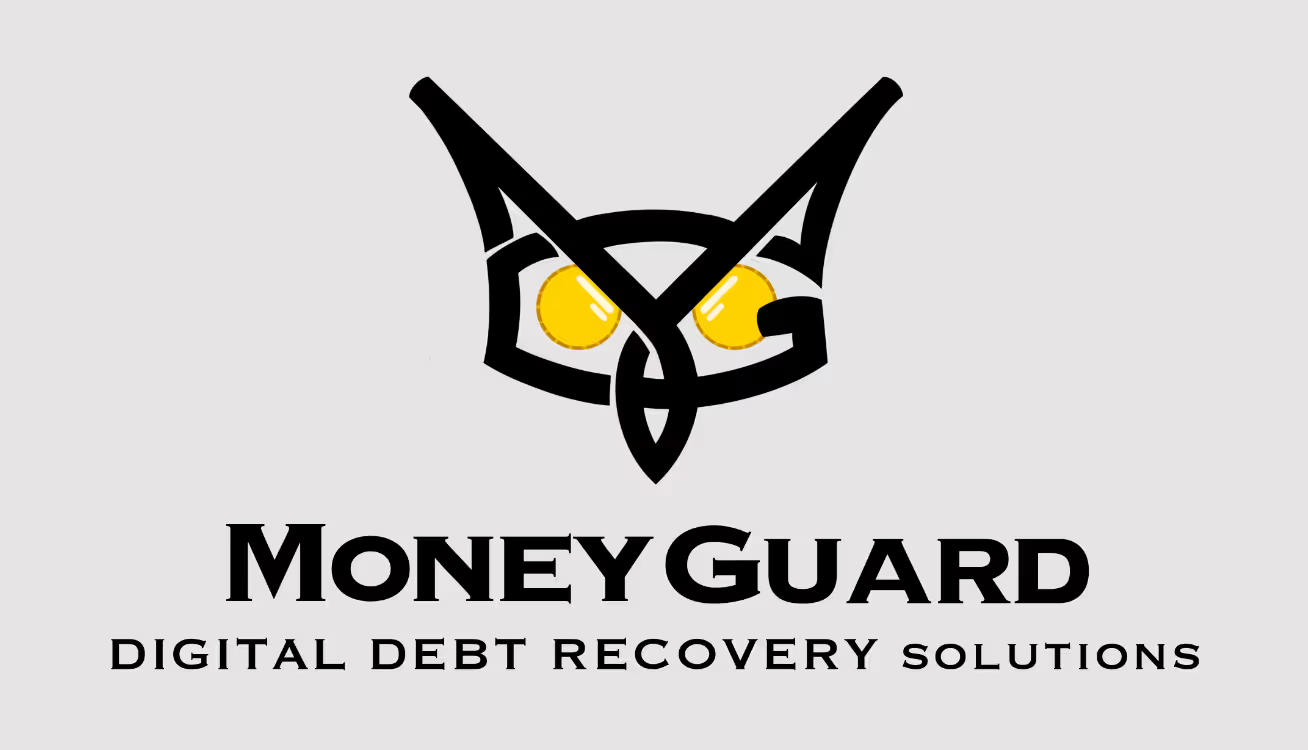
Moneyguard Solutions LLP is a premier debt recovery agency in Surat offering effective Debt Collection services in India, positioning itself as the go-to partner for debt recovery with industry expertise since 2021 and recognized for its innovative solutions and membership in esteemed associations.
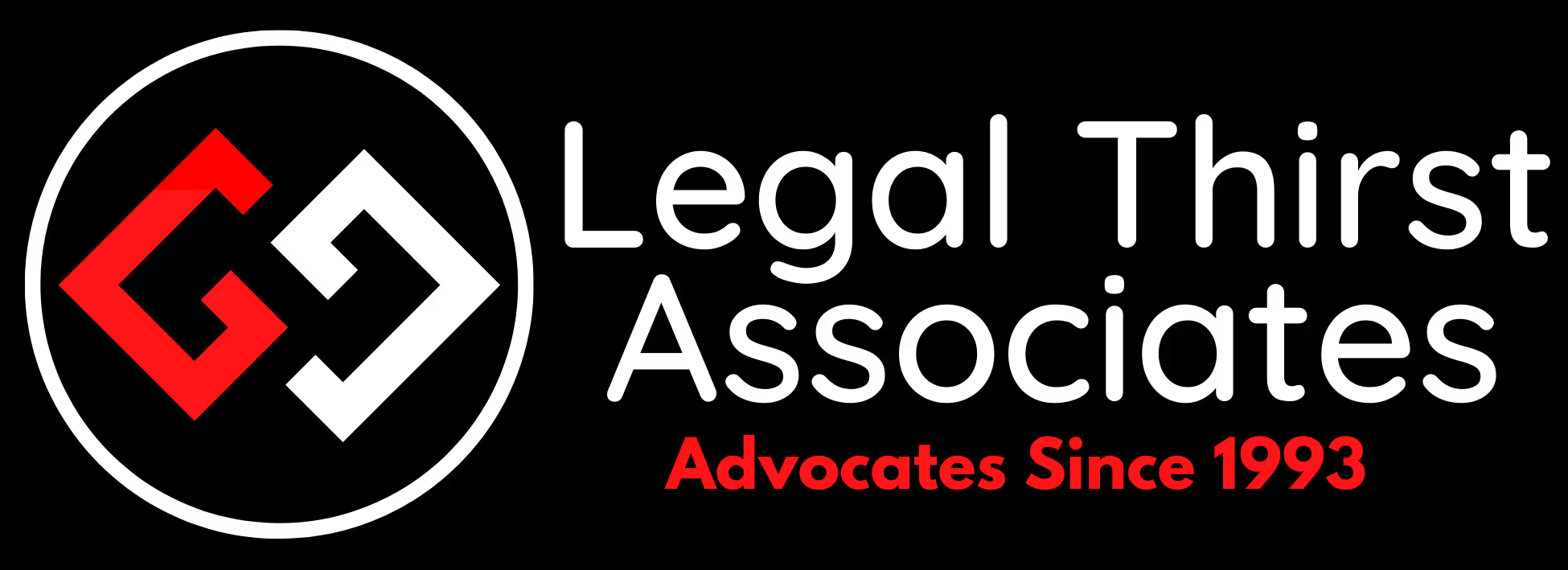
Legal Thirst Associates is a premier law firm in Rohtak offering effective Debt Collection services in India, established in 1993, with accolades from the Bar Council of Punjab & Haryana and membership in the Indian Lawyers Association, serving high-value claims nationwide.

India International Law Firm is a premier law firm in Bengaluru offering effective Debt Collection services in India, positioning itself as the go-to partner for debt recovery with a foundation in 2002, Supreme Court Bar Association membership, and a global associate network.
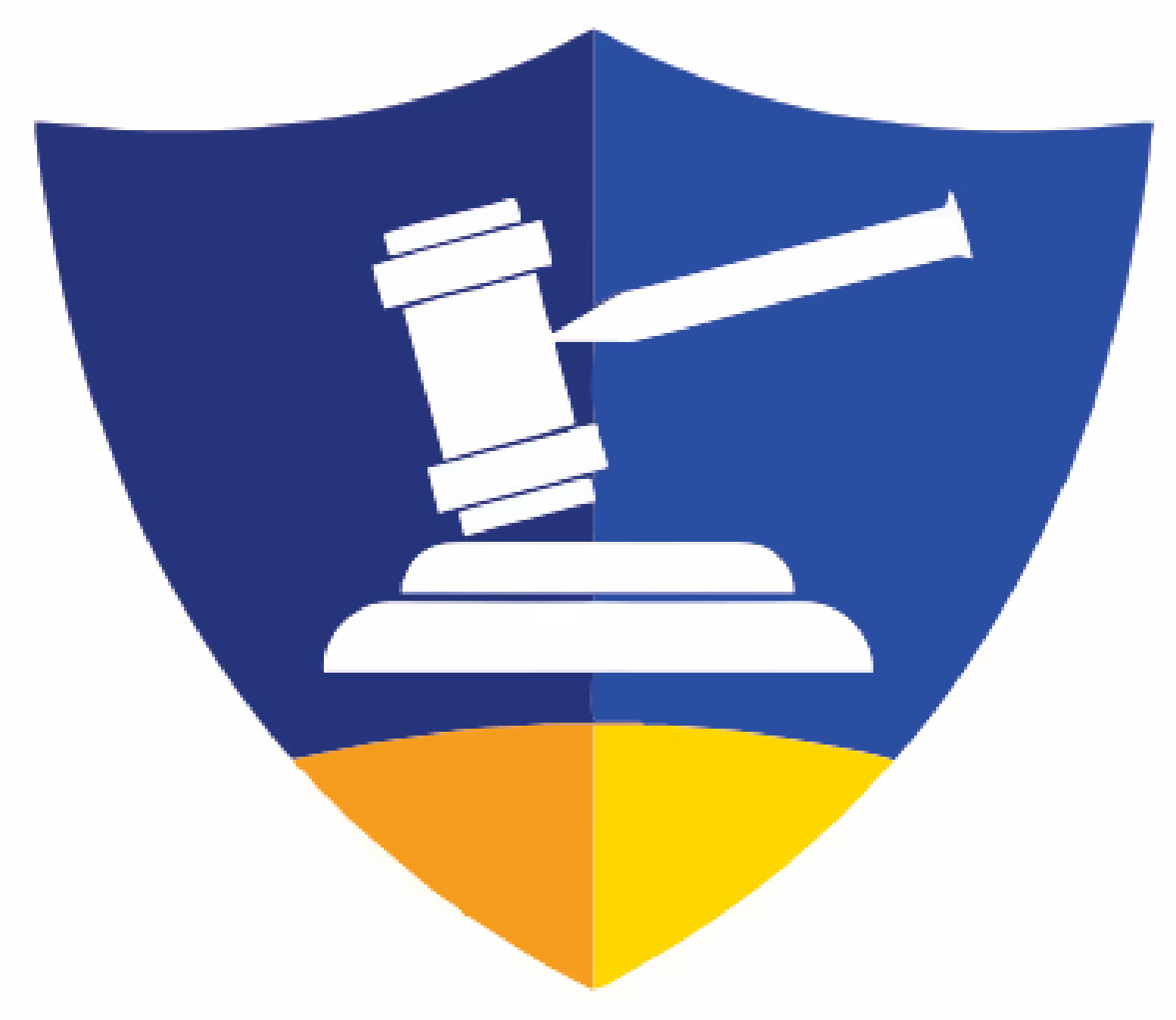
The Indian Lawyer & Allied Services is a premier law firm in New Delhi offering effective Debt Collection services in India, renowned for its expertise since 2011, with accolades such as the Women Entrepreneur Award 2022 and memberships in the Association of European Attorneys.

Srivastava & Associates is a premier law firm in New Delhi offering effective Debt Collection services in India, renowned as the go-to partner for debt recovery since 1972, with a presence in over 10 cities and specialized expertise across key industry sectors.

Lex Protector LLP is a premier law firm in Bhubaneswar offering effective Debt Collection services in India, established in 2018, renowned for its expertise and trusted as a leader in the field.
MAARUTI SERVICES is a premier debt recovery agency in Vadodara offering effective Debt Collection services in India, established in 2023 with a success rate exceeding 95%, recognized for its award-winning strategies and membership affiliations, serving corporate clients with excellence.

Pratyusha Financial Services is a premier debt recovery agency in Sundargarh offering effective Debt Collection services in India, founded in 2023, partnering with banks and NBFCs to deliver personalized solutions and drive financial inclusion across the nation.
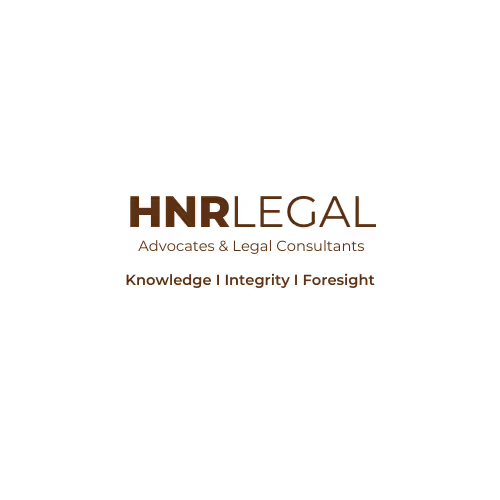
HNR LEGAL is a premier law firm in Pune offering effective Debt Collection services in India, positioning itself as the go-to partner for debt recovery with a foundation of knowledge and integrity, founded in 2014, and with offices in Mumbai and Tokyo.
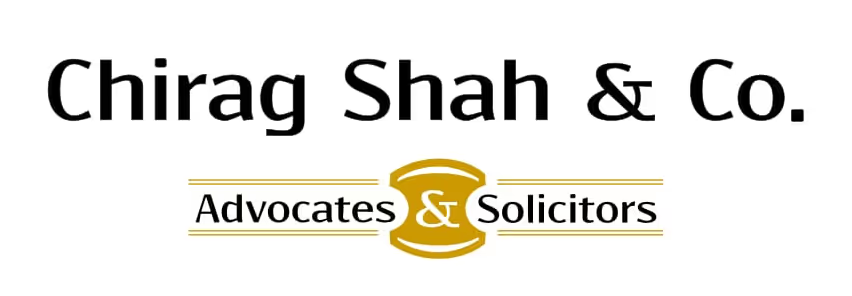
Chirag Shah & Co. is a premier law firm in Mumbai offering effective Debt Collection services in India, positioning the firm as the go-to partner for debt recovery with a strong foundation since 2008 and recognized for its awards and memberships.

Attorneys Desk is a premier law firm in Navi Mumbai offering effective Debt Collection services in India, established in 2015 and recognized for its membership in the Bar Council of Maharashtra & Goa and the Debts Recovery Tribunal Bar Association.
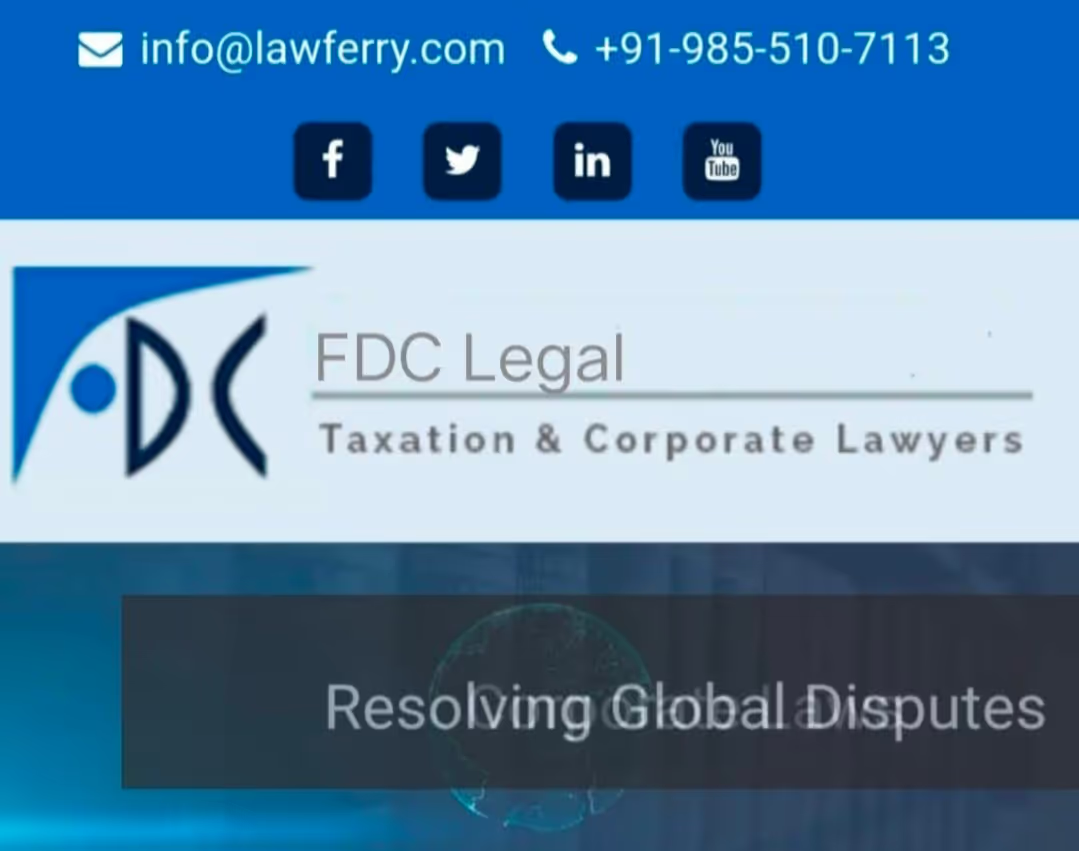
Ferry Dhiman & Co. is a premier law firm in offering effective Debt Collection services in IN, positioning itself as the go-to partner for debt recovery since 2001 with a strong reputation in corporate and tax law, supported by prestigious awards and memberships.

Golden Red Consulting is a premier debt recovery agency in India offering effective risk-free debt collection services, positioning itself as the go-to partner for debt recovery since 2011, leveraging a No Cure No Pay model as an exclusive Debitura partner in India.

Maxim Credit Management Services is a premier debt recovery agency in New Delhi offering effective debt collection services in India, renowned for its no-success-no-fee model since 2010, serving across Asian markets and internationally through a global partner network.





.svg)

.webp)
.png)

.png)
.svg)












.webp)